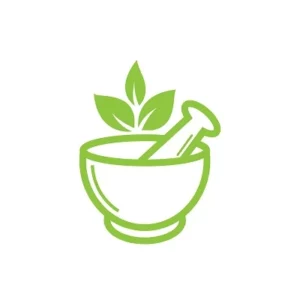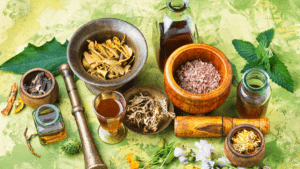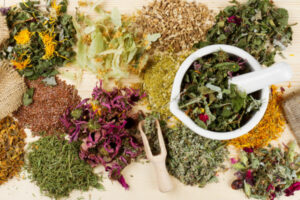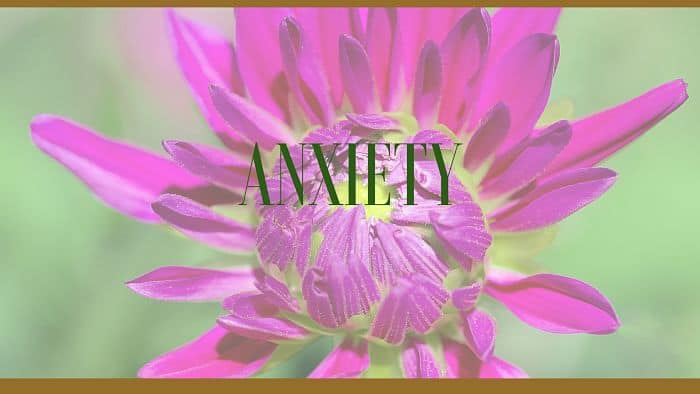Anxiety is a common problem that many people face daily. It can be caused by many different factors, such as stress at work or school, money problems, relationship issues, and more. While there are many prescription medications available to treat anxiety, they can often have negative side effects. Some people prefer to use natural supplements to reduce their anxiety symptoms. In this blog post, we will discuss the top herbs for anxiety and provide a comprehensive list of the best natural supplements to further promote relaxation and reduce stress!
Contents
Defining Anxiety
Anxiety is an emotion characterized by feelings of tension, worry, and nervousness. It is a normal stress reaction and can be helpful in some situations. However, when anxiety becomes excessive, it can interfere with daily activities and cause significant distress. Everyone experiences anxiety from time to time, but for some people, it is a chronic problem that needs to be managed daily.
It is important to note that there is a difference between anxiety and anxiety disorders. Anxiety is a normal emotion that everyone experiences at some point in their life. It can be caused by a variety of factors, such as stress, fear, or even excitement. While it is perfectly normal to feel anxious occasionally, it becomes a problem when it starts to interfere with your daily life. Anxiety disorders are more serious and can have a debilitating effect on your life if left untreated.
Herbs For Anxiety

Many different herbs have been traditionally used to treat anxiety and promote relaxation. Some of the most popular herbs for anxiety include:
Chamomile
Chamomile is a popular herb that has been used for centuries to treat a variety of problems, including anxiety. It is thought to work by increasing levels of serotonin in the brain, which can help to reduce anxiety and promote relaxation.
Kava
Kava is a herb that originates from the Pacific Islands. It has been used traditionally to treat anxiety, insomnia, and stress. Kava kava is thought to work by reducing levels of cortisol in the body, which can also help to reduce stress and promote relaxation.
Passionflower
Passionflower is an herb that has been traditionally used to treat anxiety and insomnia. It is often taken in capsule form or brewed as tea. Passionflower is thought to work by increasing levels of gamma aminobutyric acid (GABA) in the brain, which helps to reduce anxiety symptoms.
Valerian Root
Valerian root is an herbal supplement that has been traditionally used to treat insomnia and nervousness. It is thought to work by increasing levels of gamma-aminobutyric acid (GABA) in the brain, which can further help to promote relaxation and reduce anxiety.
Ashwagandha
Ashwagandha is an herb that has been traditionally used in Ayurvedic medicine to treat a variety of problems, including anxiety. It is thought to work by reducing levels of cortisol in the body, which can help to reduce stress and promote relaxation. It is also thought to have antioxidant and anti-inflammatory properties.
Lavender
Lavender is a popular essential oil that has been shown to have calming and relaxing properties. It is often used to treat stress, anxiety, and insomnia. It is thought to work by reducing levels of cortisol in the body. Lavender oil is often used in aromatherapy and is thought to have calming effects when inhaled.
Lemon balm
Lemon balm is a popular herb that has been traditionally used to treat anxiety and stress. It is thought to work by improving cognition and reducing anxiety symptoms such as nervousness.
This is just a small sampling of the many different herbs that have been traditionally used to treat anxiety and promote relaxation. If you are interested in trying out any of these herbs, it is important to speak with your healthcare provider first. They can give you more information on the risks and benefits of taking these supplements.
Things To Consider

If you are considering taking any herbs for anxiety,
- It is important to speak with your healthcare provider first. They can give you more information on the risks and benefits of taking these supplements.
- It is also important to keep in mind that herbal supplements are not regulated by the FDA in the same way that medications are. This means that there is no guarantee of their safety or effectiveness. As with any supplement, it is important to research the potential risks and benefits before taking them.
- Some people may also experience side effects when taking herbs for anxiety. Common side effects include:
- nausea
- vomiting
- diarrhea
- dizziness
- headache
- dry mouth
If you experience any of these side effects, it is important to speak with your healthcare provider. They can further help you determine if the supplement is safe for you to continue taking.
- Herbal supplements are not a replacement for evidence-based treatments such as cognitive-behavioral therapy or medication. However, they may be a helpful addition to your treatment plan. If you are considering taking any herbs for anxiety, be sure to speak with your healthcare provider first.
While there is no guarantee of their safety or effectiveness, they may be worth considering as part of your treatment plan. Be sure to speak with your healthcare provider before taking any herbal supplements.
Other Natural Supplements For Anxiety

Many different natural supplements can be effective in reducing anxiety and promoting relaxation. Some of the most popular natural supplements for anxiety include:
- Magnesium: A lack of magnesium has been linked to anxiety and stress. Magnesium supplements can also help to improve mood and reduce anxiety symptoms.
- Omega-three fatty acids: Omega-three fatty acids are thought to have anti-inflammatory properties. They have also been shown to be effective in treating anxiety and depression.
- Probiotics: Probiotics are live bacteria that are found in yogurt and other fermented foods. They are thought to have a positive effect on mental health.
- Tryptophan: Tryptophan is an amino acid that is necessary for the production of serotonin, a neurotransmitter that plays a role in regulating mood. Tryptophan supplements can also help to increase levels of serotonin in the brain, which can help to reduce anxiety and promote relaxation.
- Vitamin B-complex: Vitamin B-complex supplements are thought to help the body cope with stress. They can also help to improve mood and reduce anxiety symptoms.
You may want to consider taking one or more of these natural supplements for anxiety. Be sure to speak with your healthcare provider before taking any supplements, as they can give you more information on the risks and benefits.
Alternate Treatments
Although there is no permanent cure for curing anxiety, there are other ways which can help in managing, modifying and also reducing the severity of its symptoms and help in leading a quality life.
Therapy
Therapy is the process of talking with a trained mental health professional to help you understand and manage your anxiety. There are various types of therapy types as well as techniques which help in treating anxiety. Some examples include:
- Psychodynamic therapy
- Cognitive-behavioral therapy (CBT)
- Dialectical behavioral therapy (DBT)
- Accelerated Experiential Dynamic Psychotherapy (AEDP)
- Acceptance and commitment therapy (ACT)
- Applied Behavior Analysis (ABA)
- Exposure therapy
- Hypnosis
Medication
There are many different types of medication that can be effective in treating anxiety. Medications such as antidepressants, SSRIs (selective serotonin reuptake inhibitors), beta-blockers, Benzodiazepines, and anti-anxiety medications can all be helpful in managing anxiety symptoms. They help by balancing chemicals in the brain that are also thought to be involved in anxiety.
It is important to speak with your healthcare provider before starting any medication. This is because medications can have side effects and may not be right for everyone.
Acupuncture
Acupuncture is a traditional Chinese medicine technique that involves inserting thin needles into the skin at specific points on the body. It is thought to help relieve stress and promote relaxation.
Biofeedback
Biofeedback is a method of treatment that uses sensors to monitor bodily functions such as heart rate and muscle tension. The goal of biofeedback is to help people learn how to control these functions in order to reduce stress and promote relaxation.
Exercise
Exercise is a great way to reduce stress and promote relaxation. It can also help to improve mood and reduce anxiety symptoms. A moderate amount of exercise is the key. You don’t need to go overboard, as too much exercise can actually increase anxiety levels. Just 30 minutes of moderate exercise per day can make a big difference.
Guided imagery
Guided imagery is a type of visualization technique that involves picturing oneself in a relaxing setting. It is thought to help reduce stress and promote relaxation. It further increases the level of relaxation if you’re able to genuinely believe that the place you’re visualizing is real.
Mindfulness meditation
Mindfulness meditation is a type of meditation that involves a focus on the present moment. Meditation is thought to help reduce stress and also promote relaxation. This type of meditation can further be practiced anywhere, at any time.
Yoga
Yoga is an ancient practice that involves physical postures, breathing exercises, and meditation. It is thought to help reduce stress and promote relaxation. It is important to note that not all yoga classes are created equal. Some types of yoga, such as power yoga, can actually be quite strenuous. If you are interested in trying yoga for anxiety relief, be sure to speak with your healthcare provider first and look for a class that is designed for beginners.
These are just a few of the many different treatments that are available for anxiety. Be sure to speak with your healthcare provider about which treatment option is right for you.
Conclusion
There is a wide variety of natural supplements and alternative treatments that can be effective in reducing anxiety and promoting relaxation. Be sure to speak with your healthcare provider before taking any supplements or starting any new treatment regimen. With the help of a qualified healthcare professional, you can find the best way to reduce stress and promote relaxation for you. Seek help if you need it and do not be afraid to ask for support from those who care about you. Remember, YOU ARE NOT ALONE!
For more information, please contact MantraCare. Anxiety is a common mental health condition characterized by persistent feelings of worry, fear, and apprehension. If you have any queries regarding Online Anxiety Counseling experienced therapists at MantraCare can help: Book a trial Anxiety therapy session


